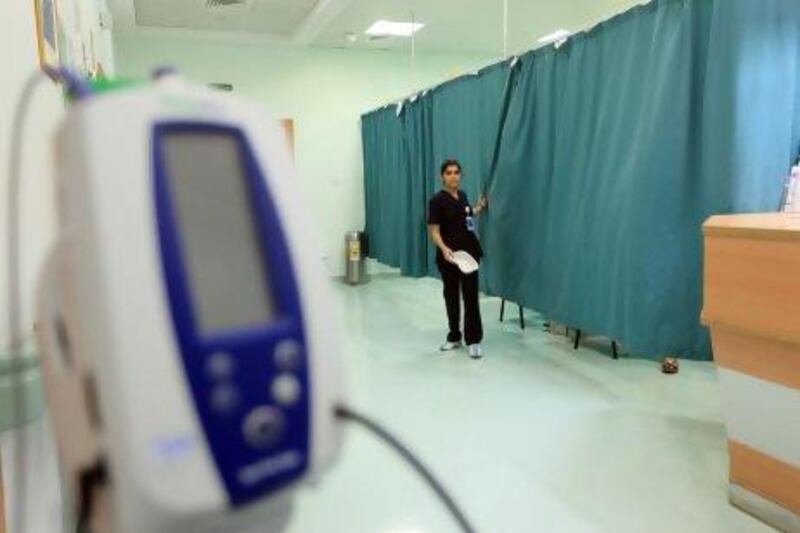Going to the doctors has very little in common with buying a house, a car or a new pair of sneakers. For this reason, among many others that are far more important, the simple economics of market forces do not readily apply to the provision of health care.
There is ample evidence to support this view in the United States, a country that spends far more of its available capital on health care than any other.
According to the World Health Organisation's latest figures, the US spends the equivalent of 17.9 per cent of its GDP, or $8,362 per person (Dh30,716), on health each year.
The UAE - which has a world-class healthcare sector with some of the finest hospitals, clinics and physicians - by contrast spends 3.7 per cent of GDP or $1,544 per person.
Surprisingly, more than half of America's healthcare spending comes from the public purse with funds such as Medicare and Medicaid accounting for about $4,400 of annual per capita spending. But it is not in the publicly provided healthcare sector where the biggest problems have arisen for America.
The bankruptcies of corporate titans such as American Airlines and General Motors were primarily caused by ballooning healthcare costs for retired workers that ran into the tens of billions of dollars.
The companies could simply not afford to pay the ever-expanding doctor's bills for retired workers who were living longer thanks to the increasing sophistication of the health care they received.
The vast improvements in life-extending healthcare technology and medicine that exist today were simply not envisioned when those funds were created.
There is a very similar, and equally troubling, problem beginning to appear in the UAE.
This country is a health insurance company's dream. Private health insurance must be held by everyone living in Abu Dhabi, and soon in Dubai. The vast majority of the population is employed, and therefore has some level of employee-provided health insurance again provisioned by law in the capital. Indeed, anyone with a nanny or live-in housekeeper will tell you of the gruelling trip out to Musaffah to get the Daman card you must provide when you sponsor a domestic worker.
But there are several major caveats that have spoiled the party for health insurers, and most of them are their own doing.
First of all they have systematically reduced premium payments over recent years as competition has intensified. At the same time the cost of health care has ballooned. The result is a balance sheet problem almost identical to that encountered by GM and American Airlines.
That is, low fees and high costs will never add up, so something has to give. The trouble is, what has to give is the provision of health care to sick people.
In the event of the bankruptcies described above, we can all live without a new pickup truck or a flight to Orlando for the holidays. But cancer patients can't live without chemotherapy.
There are also broader problems in this market. One of the biggest in terms of budgeting for health care is the propensity of people to go straight to the top of the medical tree for treatment, no matter how benign their ailment may be.
Ask any doctor at any of the leading medical facilities here and they will tell you that most people in the UAE seek treatment from a consultant for illnesses and conditions more appropriately treated by a GP.
This is because their insurance policy allows them to. Again the insurers, desperate for business, are at fault. Indeed, some have started to jack up premiums by as much as 20 per cent to make up for their shortfalls.
Expensive prescription drugs are another big problem. When an insurer is picking up the tab it is easy for a clinic to prescribe an expensive branded treatment rather than a cheap generic. Margins are better all around - apart form the clumsy insurer whose rock bottom premiums lead to a loss on the transaction.
The disastrous mismatch between premiums and prices became only too real for patients of Mediclinic hospitals in Dubai this week. The company revealed it was caught in a game of brinkmanship with some insurers over tariffs.
If the problem is not resolved by the end of this month there is a chance some patients will be stuck with a very large bill. This sort of financial intrusion into the medical sphere is clearly unacceptable.
The Government and the medical community have ensured the UAE has one of the finest healthcare systems anywhere. Now is the time for the accountants and insurers to devise an appropriate financial framework to ensure its affordable and equitable distribution.





